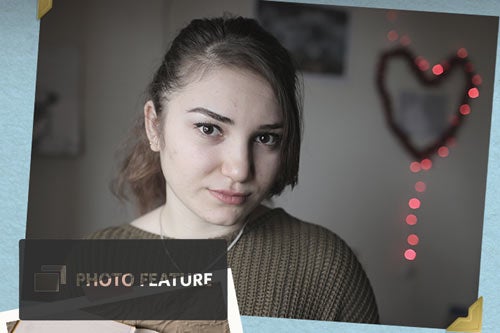News
Child marriage, female genital mutilation urgent priorities as pandemic threatens progress
- 01 February 2021
News
UNITED NATIONS, New York – February is a busy month for retailers marketing the promise of “happily ever after” to girls around the world. But for tens of millions of girls, this is just a fairytale. Their girlhoods are ending, not with storybook romance but with harmful rites of passage such as child marriage and female genital mutilation – practices believed to be increasing as the COVID-19 pandemic forces girls out of school and drags their families into poverty.
There is strong international consensus that child marriage and female genital mutilation are human rights violations that must stop, yet the practices persist. Globally, some 200 million women or girls alive today have experienced female genital mutilation, and at least 4 million girls are at risk of undergoing the practice each year. Some 650 million women alive today were married off before their 18th birthdays, and tens of thousands more are married every day.
Last year, UNFPA and partners projected that the pandemic would likely delay efforts to end both practices. These delays could result in 2 million more cases of female genital mutilation over a 10-year period that could otherwise have been averted. Deferred efforts to end child marriage, along with increasing rates of poverty, could lead to 13 million more cases of child marriage over the same decade-long period.
Advocates are now ramping up efforts to prevent these grim forecasts from taking hold.
The sixth of February is the International Day of Zero Tolerance for Female Genital Mutilation, and Valentine's Day, on the 14th, is a moment when child marriage advocates traditionally sound the alarm over early marriage. This year, advocates are calling on leaders, community members and parents to take decisive action against both practices. It is time, they say, to give girls the power to claim their bodies and futures for themselves.
Chinara Kojaeva, now 20, chose her own path. She escaped child marriage twice in her native Georgia, at ages 14 and 17. “My life is not theirs to decide,” she says.

Together, UNFPA and UNICEF are running two of the world’s largest collaborations to end these harmful practices.
The UNFPA-UNICEF Joint Programme on Female Genital Mutilation works in 16 countries where the practice is prevalent. In 2019, these efforts resulted in more than 2.8 million people in 3,362 communities publicly declaring they would abandon female genital mutilation.
In Kenya, one of the Joint Programme countries, former circumcisers are being mobilized to fight against the practice they once profited from. “After a night of singing and dancing, the girls would wake up at the crack of dawn and shower. We would then proceed to the cowshed where I performed the cut,” described Kokarupe Lorwu, who performed female genital mutilation for 20 years.
She learned the tradition from her grandmother, who was also a circumciser. But once she learned about the harmful effects of the practice – including haemorrhage, infection and even death – she put down her tools.
The UNFPA-UNICEF Global Programme to End Child Marriage covers 12 countries that account for over 300 million of the world’s current and former child brides. Between 2016 and 2019, the Global Programme reached 7.9 million girls with empowerment programmes teaching girls about their rights and bodily autonomy and the harms of child marriage. A further 240 million individuals have been reached through media campaigns.
In Nepal, one of the Global Programme countries, Bindu Kumari was married off at age 17.

“Daughters were considered a burden on a family and any financial investment in her would be deemed worthless,” she told UNFPA recently.
She later became an elected leader in her municipality. Today, she calls on parents to educate their daughters. “Your daughter is not yours to deny an education,” she said. “A girl is not yours to force into marriage at a young age.”
Leaders like Ms. Kumari are determined to turn the tide. But much more needs to be done, as the pandemic threatens their hard-won progress.
Communities and countries must unite in opposition to these practices.
In Türkiye, Nuray Ergin, a health mediator, is trying to do just that. “We will visit the homes, go through the neighbourhoods, informing people, and put an end to early marriage,” she said. “We’ll say no. All together.”
And in Indonesia, advoate Listyowati is working in her community to raise awareness of women's rights and end female genital mutilation. “Save girls from all forms of violence,” she says. “Her body is hers, not yours.”